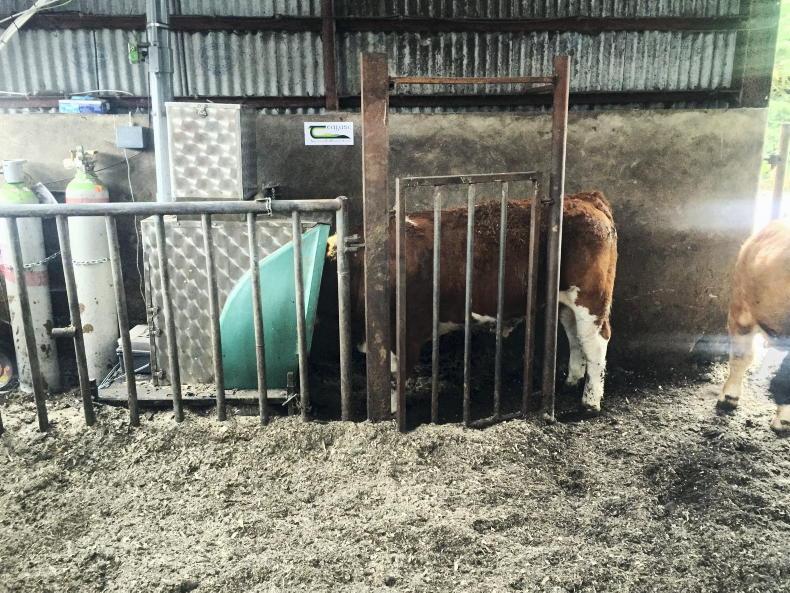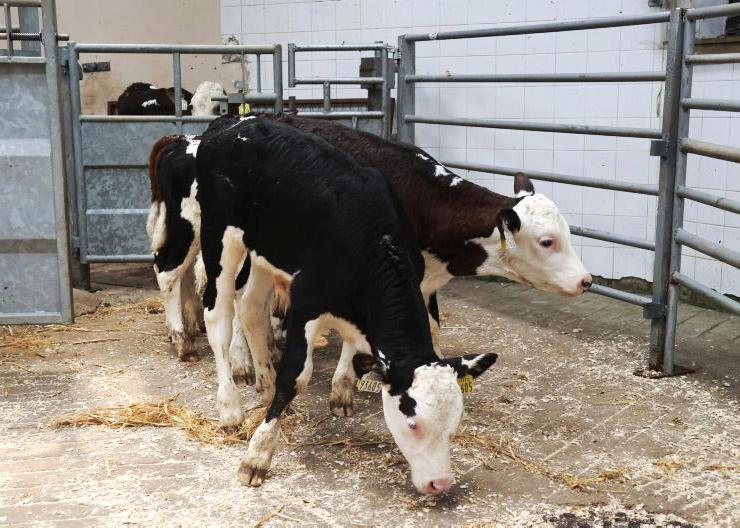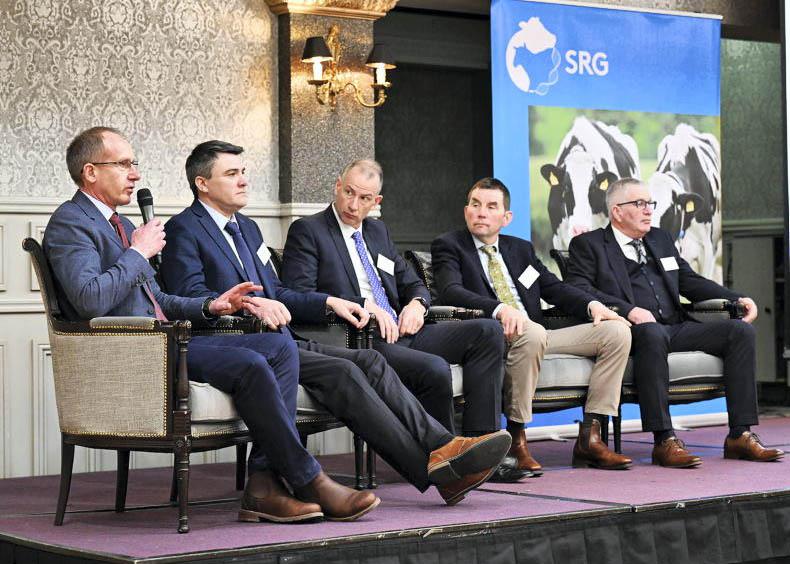The Irish Cattle Breeding Federation (ICBF) has published the first ever comparison of AI sires which analyses the methane produced by their progeny.
The new database is based on data from over 1,500 cattle that were measured for their methane output and over 3,300 cattle whose feed intakes were measured.
The analysis looked at the data from 19 different breeds and the research signified large differences in daily methane emissions between animals fed the same diet.
Some 11% of these differences could be traced to genetic differences.
This implies that breeding programmes focused on reducing daily methane emissions from cattle will be fruitful, especially when combined with the research on the best genetics for earlier finishing of cattle for slaughter.
Research
The generation of methane evaluations comes directly from the collaborative effort between the ICBF, the Department of Agriculture, Fisheries and the Marine (DAFM) and Teagasc through projects such as GREENBREED, RumenPredict and MASTER and funding from the Irish Research Council.
Methane emissions from livestock, particularly cows, are a significant contributor to greenhouse gas emissions.
Methane is a potent greenhouse gas, with a global warming potential more than 25 times that of carbon dioxide over a 100-year timescale.
As such, reducing methane emissions from livestock is an important step in mitigating climate change, as well as improving the efficiency of both dairy and beef cattle production systems.
Choosing the right bull
Genetics will play an essential role in reducing methane emissions.
Selective breeding and genetic modification approaches offer promising solutions for producing cows that are less methane-intensive and more environmentally friendly, the ICBF has said.
Methane predicted transmitting ability (PTA) figures are now available online for AI sires that have had progeny with methane data recorded in the Tully Progeny Performance Test Centre.
For a farmer choosing a bull, the lower the bull's PTA is, the lower the methane output will be from his progeny.
Future developments
The ICBF is now focusing on collaboration with other research bodies to scale up the recording of methane-transmitting ability and to cover more systems of production such as grass-based diets and lactating cows.
As more and more records become available, methane PTAs will become available for genotyped animals.
Methods on how best to include a methane trait in the dairy (EBI), dairy-beef (DBI) and beef (terminal and replacement indices) are currently being developed.
Over time, methane evaluations will become an essential part of the broader effort to improve the sustainability of Irish farming.
“By providing farmers with methane data, they will be able to identify opportunities to reduce emissions and improve the sustainability of their enterprise,” the ICBF’s senior business analyst Erin Kennedy said on Friday.
Read more
Teagasc records first commercial ewe methane measurements
Feed and slurry additives could reduce farm emissions by 25%
The Irish Cattle Breeding Federation (ICBF) has published the first ever comparison of AI sires which analyses the methane produced by their progeny.
The new database is based on data from over 1,500 cattle that were measured for their methane output and over 3,300 cattle whose feed intakes were measured.
The analysis looked at the data from 19 different breeds and the research signified large differences in daily methane emissions between animals fed the same diet.
Some 11% of these differences could be traced to genetic differences.
This implies that breeding programmes focused on reducing daily methane emissions from cattle will be fruitful, especially when combined with the research on the best genetics for earlier finishing of cattle for slaughter.
Research
The generation of methane evaluations comes directly from the collaborative effort between the ICBF, the Department of Agriculture, Fisheries and the Marine (DAFM) and Teagasc through projects such as GREENBREED, RumenPredict and MASTER and funding from the Irish Research Council.
Methane emissions from livestock, particularly cows, are a significant contributor to greenhouse gas emissions.
Methane is a potent greenhouse gas, with a global warming potential more than 25 times that of carbon dioxide over a 100-year timescale.
As such, reducing methane emissions from livestock is an important step in mitigating climate change, as well as improving the efficiency of both dairy and beef cattle production systems.
Choosing the right bull
Genetics will play an essential role in reducing methane emissions.
Selective breeding and genetic modification approaches offer promising solutions for producing cows that are less methane-intensive and more environmentally friendly, the ICBF has said.
Methane predicted transmitting ability (PTA) figures are now available online for AI sires that have had progeny with methane data recorded in the Tully Progeny Performance Test Centre.
For a farmer choosing a bull, the lower the bull's PTA is, the lower the methane output will be from his progeny.
Future developments
The ICBF is now focusing on collaboration with other research bodies to scale up the recording of methane-transmitting ability and to cover more systems of production such as grass-based diets and lactating cows.
As more and more records become available, methane PTAs will become available for genotyped animals.
Methods on how best to include a methane trait in the dairy (EBI), dairy-beef (DBI) and beef (terminal and replacement indices) are currently being developed.
Over time, methane evaluations will become an essential part of the broader effort to improve the sustainability of Irish farming.
“By providing farmers with methane data, they will be able to identify opportunities to reduce emissions and improve the sustainability of their enterprise,” the ICBF’s senior business analyst Erin Kennedy said on Friday.
Read more
Teagasc records first commercial ewe methane measurements
Feed and slurry additives could reduce farm emissions by 25%









SHARING OPTIONS